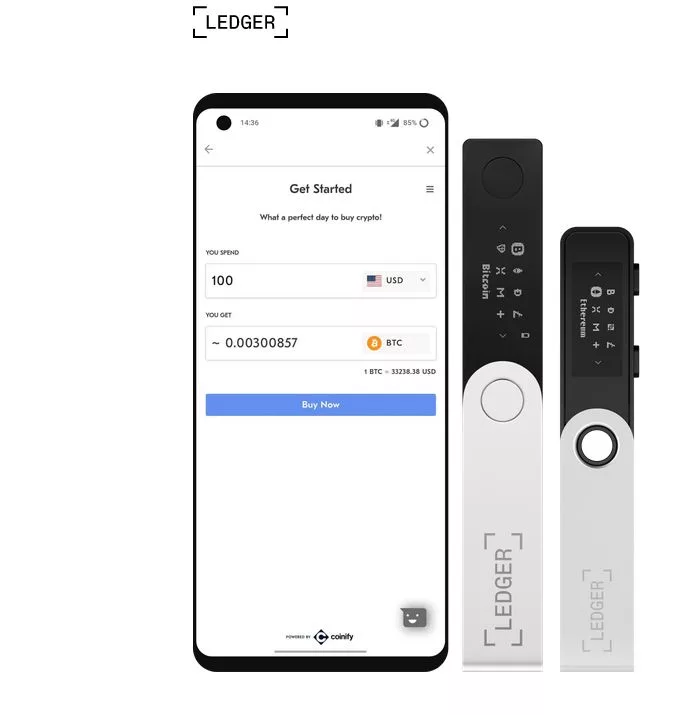

Ledger Wallet Review: Bitcoin Hardware Wallet
83,00 €
Ledger hardware wallets store your bitcoin private keys offline in physical devices. The wallets are Ledger Stax, Ledger Nano X, Ledger Flex, and Ledger Nano S Plus.
Description
Ledger offers highly secure hardware wallets that keep your private keys offline, making it safer than hot wallets connected to the internet. Owned by the French company Ledger SAS, Ledger has gained both popularity and controversy in the Bitcoin community. While it provides cold storage solutions that add an extra layer of protection, its new “Ledger Recover” feature has sparked concerns about data privacy by involving third-party services for seed phrase recovery.
4 Things You Should Know Before Buying a Ledger Wallet
- In May 2023, Ledger introduced a controversial “Ledger Recover” service that raised concerns about private key safety, as it involved sharing data with third parties.
- Ledger experienced a data breach in July 2020, exposing the personal information of over 270,000 customers, though no funds were stolen.
- Ledger wallet is proprietary, not an open-source hardware wallet, which limits independent security audits and community scrutiny of the code.
- Consider open source hardware wallets like Bitbox or Blockstream Jade that offer strong options without similar privacy concerns.
Types of Ledger Wallets
Ledger offers three types of hardware wallets: the Ledger Nano S Plus, Ledger Nano X, and the Ledger Stax.
- Ledger Nano S Plus – Budget-friendly and ideal for simple Bitcoin transactions. No iOS mobile app support.
- Ledger Nano X – Features Bluetooth connectivity, making it easier to use on mobile devices.
- Ledger Stax – Ledger’s premium model with Bluetooth, a larger screen and enhanced display, priced higher but offering more advanced features.
- Ledger Flex – A versatile and lightweight option with Bluetooth functionality, designed for those who want a balance between portability and functionality.
Each of these models keeps your private keys offline, which means your Bitcoin is stored securely out of reach of online threats. With these wallets, you can view your balance and validate transactions on your device, providing additional security and control over your Bitcoin holdings.
How Ledger Wallet Works
A Ledger hardware wallet functions like a mini-computer dedicated to securing Bitcoin transactions. Here’s a simplified process of how it works:
- Setup – When setting up your Ledger wallet, you create a PIN code and receive a 24-word recovery phrase. The PIN code locks your device, while the recovery phrase is essential for restoring access if the device is lost or damaged.
- Using Ledger Live – Once connected via USB, you can use Ledger Live, Ledger’s desktop and mobile app, to manage your Bitcoin, check balances, and view transaction history. Ledger Live also allows you to buy and sell Bitcoin through integrated Bitcoin exchanges.
- Transaction Verification – All transactions are verified within the device. This means you can confirm amounts, recipients, and other details directly on your Ledger wallet’s screen before approving any transfers.
If you’re interested in transacting on the Liquid network, the Ledger Nano S can be connected with Blockstream Green for Liquid asset support. However, it’s worth noting that Ledger Live doesn’t support Liquid assets natively, so you need a compatible external wallet for these transactions.
Ledger Wallet Key Features
Availability of features may differ based on the type or model of Ledger wallet you have purchased.
- Liquid Network Compatibility: Yes, Ledger Wallet supports transactions on the Liquid Network.
- Multisig: Ledger is a multisig wallet for added security.
- Two-Factor Authentication (2FA): Available for enhanced wallet security.
- SegWit and Replace-by-Fee (RBF): Ledger supports both SegWit for lower fees and RBF for transaction flexibility.
- xPub and Coin Control: Provides xPub export and coin control for advanced Bitcoin management.
- Mobile and Desktop Apps: The wallet is compatible with Ledger’s mobile and desktop apps, making it accessible on Android, iOS, Linux, macOS, and Windows.
- Built-in Exchange: You can buy Bitcoin directly within the Ledger Live app.
- Duress Wallet: Offers a hidden duress wallet option, which adds a layer of security in situations requiring a decoy.
- Battery and Bluetooth: Some Ledger models come with a built-in battery and Bluetooth functionality (e.g., Ledger Nano X), enabling wireless connectivity.
- Display: Some models offer a color touchscreen.
- USB-C Connector: Equipped with a USB-C port for wired connectivity.
- PSBTs: Ledger Wallets support Partially Signed Bitcoin Transactions (PSBTs), which allows multiple participants to sign a transaction without any one party having full control over it.
- Tor and microSD Card Support: Currently, Ledger does not support Tor integration or microSD card storage.
Pros and Cons of Ledger Wallet
Pros
- Mobile App Compatibility – Available on both Android and iOS, making it easy to access Ledger Live from any device.
- Bluetooth Connectivity – The Ledger Nano X supports Bluetooth for greater mobility.
- Durable Design – Each Ledger device comes in a durable steel case that protects it from physical damage.
- Accessible Price Range – Ledger wallets are competitively priced, making them accessible without compromising quality.
- Reputable History – Since 2014, Ledger has established itself as one of the most trusted hardware wallet providers in the industry.
Cons
- Not Air-Gapped – Ledger wallets require physical or Bluetooth connections, unlike fully air-gapped wallets that avoid all connections for maximum security.
- Proprietary Software – Ledger’s closed-source code limits transparency, which some Bitcoin users find less trustworthy.
- Multi-Currency Support – The support for multiple cryptocurrencies may be seen as a distraction and drawback for Bitcoin maximalists.
- Small Screen – Both the Nano S Plus and Nano X models have relatively small screens, which can be cumbersome for some users.
- 2020 Data Breach – Despite security improvements, Ledger’s 2020 data breach remains a concern for those valuing privacy.
Pricing: How Much Does a Ledger Wallet Cost?
The prices of Ledger wallets vary based on the model:
- Ledger Nano S Plus: $79 – Affordable and great for simple Bitcoin-only storage.
- Ledger Nano X: $149 – Offers more functionality, including Bluetooth support.
- Ledger Flex: $249 – It features a secure touchscreen, NFC capability, Bluetooth connectivity.
- Ledger Stax: $279 – The newest and most advanced model with a larger screen and premium design.
To ensure you’re buying an authentic Ledger wallet, it’s recommended to purchase directly from Ledger’s official site to avoid counterfeit products.
Is Ledger Wallet Safe?
Ledger wallets are known for their robust security measures to protect Bitcoin and other assets through offline, cold storage solutions. Core safety features include PIN codes, offline storage, and a 24-word recovery phrase, all of which contribute to a secure environment for your Bitcoin. Additionally, Ledger wallets support multisignature (multisig) functionality, allowing users to require multiple authorizations for transactions, which adds an extra layer of protection.
The wallet also includes a duress wallet option, a hidden feature that can act as a decoy in emergency situations, further enhancing security. However, it’s important to note that Ledger is not air-gapped, meaning it does not offer the complete isolation from internet connectivity that some users may prioritize for maximum security.
While Ledger has a strong reputation, some concerns remain. First, its closed-source code means the proprietary software is not open for public or community review, limiting transparency and independent verification of its security protocols. Another issue involves the “Ledger Recover” feature introduced in May 2023, which was intended to help users recover lost seed phrases. This feature raised significant privacy concerns, as it involves sharing data with third parties.
Additionally, Ledger faced a data breach in 2020, in which customer information was exposed. While no funds were lost in the breach, the incident raised concerns about user data protection. Since then, Ledger has implemented stricter measures to safeguard user information and prevent similar breaches in the future.
Final Tips for Securing Your Ledger Wallet
- Store Your Recovery Phrase Securely – Keep your 24-word recovery phrase offline in a secure location.
- Be Wary of Phishing Scams – Always verify emails from Ledger by checking for official communication channels and avoiding suspicious links.
- Buy Only from Official Sources – Purchasing directly from Ledger’s official website reduces the risk of counterfeit products.
Is Ledger Wallet Good for You?
Ledger Wallet has a broad feature set that can appeal to many users, but it may not be ideal for everyone. However, for Bitcoin maximalists or beginners who want to focus exclusively on Bitcoin without distractions from other cryptocurrencies, its multi-asset support may be a drawback. Additionally, with the Ledger Live app, you can buy Bitcoin directly within the app.
Ledger Wallet is a self-custodial option, giving you full control of your private keys and funds. However, Ledger’s closed-source software may raise concerns among users who value transparency and prefer open-source wallets for Bitcoin. Moreover, the wallet is not air-gapped, which can be a downside for those who prioritize maximum security and isolation from internet connectivity.
In terms of security, Ledger offers several beneficial features, including multisignature (multisig) support, which enables you to add an extra layer of protection by requiring multiple signatures to authorize a transaction. Two-Factor Authentication (2FA) is also available. The wallet supports SegWit, which enables lower transaction fees, and Replace-by-Fee (RBF), allowing you to adjust transaction fees if needed. For advanced Bitcoin management, Ledger provides xPub export and coin control, allowing advanced users to manage their Bitcoin addresses and select which coins to spend.
Ledger’s compatibility with both mobile and desktop apps ensures flexibility and accessibility across different operating systems, including Android, iOS, Linux, macOS, and Windows. Additionally, the wallet offers a duress wallet feature—a hidden wallet option that can act as a decoy in emergency situations, adding an extra layer of security.
Ledger wallets remain a top choice for Bitcoin storage, balancing user-friendliness and security. However, the controversies around Ledger Recover, data privacy, and its closed-source code might give Bitcoin maximalists pause. If you prioritize Bitcoin-only wallets or open-source alternatives, consider options like BitBox or Blockstream Jade may offer an ideal balance of security and transparency.
Reviews of Ledger Wallets Alternatives
-

TwentyTwo Hardware Wallet Review
0 out of 5(0) -

What is a KeepKey Wallet?
0 out of 5(0) -

What is Bitkey Wallet? [Bitkey Review 2024]
0 out of 5(0) -

OneKey Wallet Review: Lightning Hardware Wallet
0 out of 5(0) -

Satochip Review: Hardware Wallet Like a Bank Card
5.00 out of 5(1) -

Tapsigner Review: Smart NFC Bitcoin Card
5.00 out of 5(1) -

Blockstream Jade Review: Open-Source Bitcoin Hardware Wallet
0 out of 5(0) -

Passport Hardware Wallet: Open Source Bitcoin Wallet
0 out of 5(0) -

Bitbox Wallet Review: Open Source Hardware Wallet
0 out of 5(0) -

Coldcard Wallet: Air-Gapped Hardware Wallet
0 out of 5(0) -

Ledger Wallet Review: Bitcoin Hardware Wallet
3.00 out of 5(1) -

Trezor Review: Open Source Hardware Wallet
5.00 out of 5(1)
Additional information
| Bitcoin Only | |
|---|---|
| Source Code | |
| Wallet Type | |
| Liquid Network | |
| Multisig | |
| 2FA | |
| SegWit | |
| Replace by fee (RBF) | |
| xPub support | |
| Coin Control | |
| Mobile App | Yes |
| Dekstop App | Yes |
| Operating System (OS) | |
| Built-in Exchange | |
| Duress Wallet | |
| Battery | Yes |
| Bluetooth | Yes |
| Color Display/Touchscreen | Yes: Ledger Stax, No: Ledger Nano X and Ledger Nano S Plus |
| USB-C Connector | Yes |
| Air-gapped | |
| PSBTs | |
| Tor Support | |
| microSD card | No |
| QR Code | |
| NFC | |
| Year Launched | 2014 |
| Made in | France |

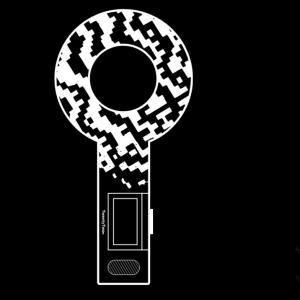




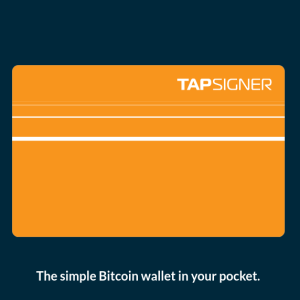

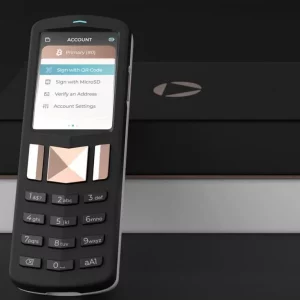

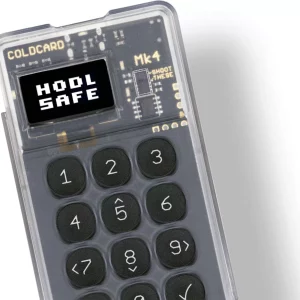
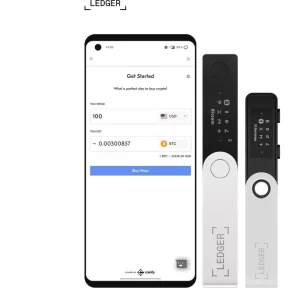
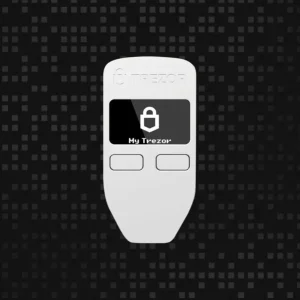








Ariel –
While Ledger is a popular hardware wallet, it’s worth noting that it also supports many other cryptocurrencies which may not be ideal for Bitcoin maxis or purists. Additionally, there have been some concerns about privacy breaches in the past, with email addresses being leaked. It’s also important to note that the software isn’t open-source. While Ledger may work well for some users, those who prioritize Bitcoin-only and open-source solutions may want to explore alternative wallets.